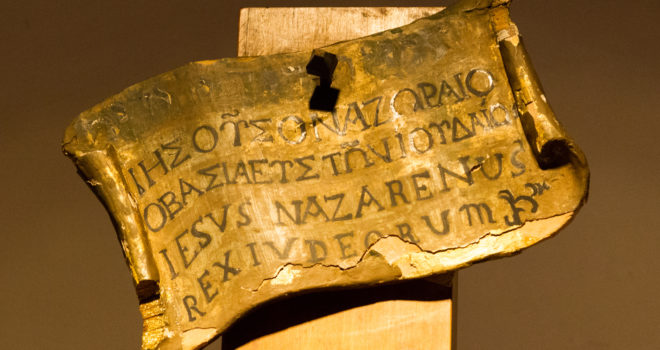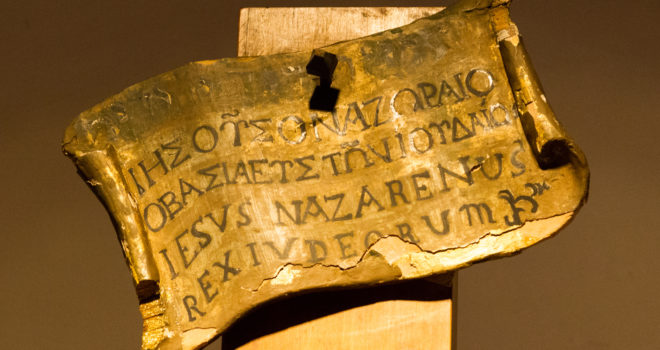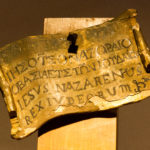Edward “Eddie” Doherty (1890-1975) was an American newspaper reporter, author, and Oscar-nominated screenwriter. At one time he was the highest paid journalist in the country. In 1943 he married Baroness Catherine de Hueck and together they founded Madonna House, a spiritual and retreat centre. At the age of seventy-eight, Doherty was ordained a priest in the Byzantine Rite Melkite Greek Catholic Church.
A simple wooden cross marks his grave at Madonna House in Combermere, Ontario reading “All my words for the Word.” It is a beautiful phrase that organizes and ordinates all the words that came from his pen to God. It is a fine motto for any Catholic writer to adopt, for what is more worthy of fidelity than the Word of God? I once prayed over his grave with the hope that I could absorb a scintilla of his dedication.
The importance of using words in accordance with their proper meaning cannot be overestimated. The Good Book tells us that “Every idle word that men shall speak, they shall give account thereof in the day of judgment” (Matthew 12:36). According to Confucius, “If language is incorrect then what is said is not meant. If what is said is not meant, then what ought to be done remains undone”.
Early in his pontificate, Pope Francis told a reporter from the Jesuit magazine America that he thought pro-life people were “obsessed” with abortion. This word is associated with “compulsion” and is disrespectful to the heroic work performed by defenders of life. The more accurate word to describe pro-lifers is “zeal,” which, in the language of St. Thomas Aquinas, is “the intensity of love” (S.T. I-II, 28, 4). St. Paul advises us to “Be zealous for spiritual gifts” (I Cor 14, 1).
In his international bestseller, Crossing the Threshold of Hope, Pope John Paul II took strong exception against the accusation that defenders of life could be “obsessed” with the abortion issue. He states that it’s difficult to imagine a worse situation than legalizing abortion, “and it is very difficult to speak of obsession in a matter such as this, where we were dealing with a fundamental imperative of every good conscience — the defense of the right to life of an innocent and defenseless human being.”
He goes on to point out that we should be “pro-choice” but in the sense of being “courageously pro-woman.” The only honest stance, in these cases, is of a radical solidarity with women. It is not right to leave her alone.”
At the opposite end of the spectrum, some who defend abortion go beyond respecting the proper us of the word to denying that it should be used. Congresswoman Kathleen Rice has lost sight of the meaning of the word “abortion” and argues that its use actually impedes dialogue. “I would suggest you stop throwing the word ‘abortion’ around . . . If we are going to have real conversation about this, we have stop using language that is going to prevent an actual meaningful conversation from happening.” It is not likely that omitting the word “abortion” would clarify a discussion on abortion. The words of Hammarskjold, former Secretary General of the United Nations, come to mind: “Respect for the word is the first commandment in the discipline by which man can be educated to maturity—intellectual, emotional, moral.”
Fidelity to words is a way of being honest with people. One might even say that fidelity to words lays the groundwork for social justice. Honesty and justice are rooted in love which is the heart of all virtues. Words are, indeed, vessels of love.
✠
Image: Shutterstock/Adam Jan Figel












